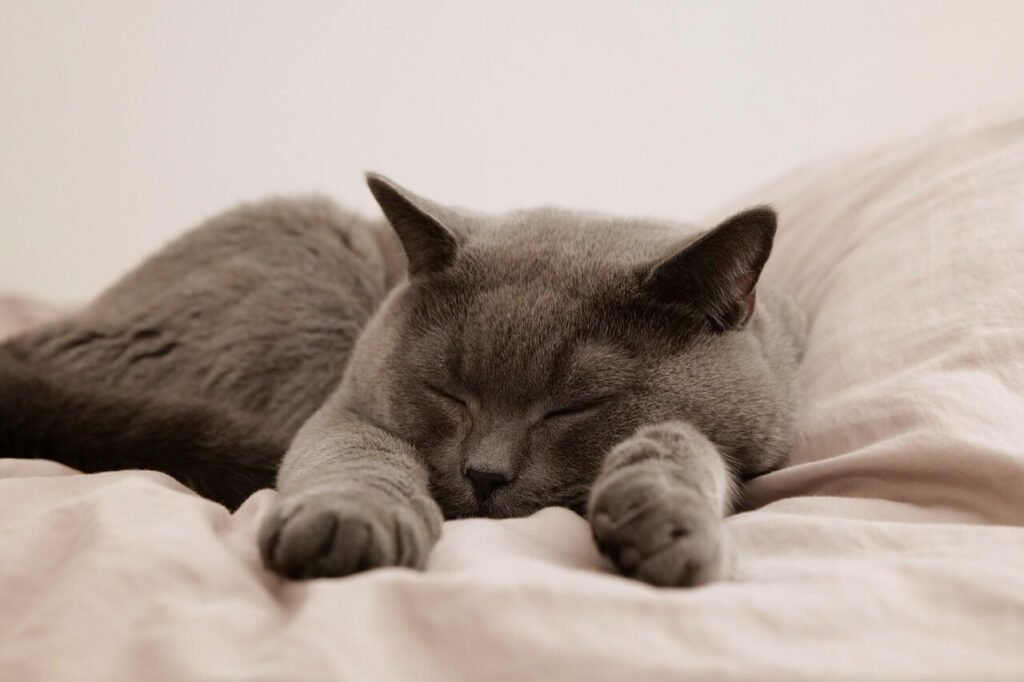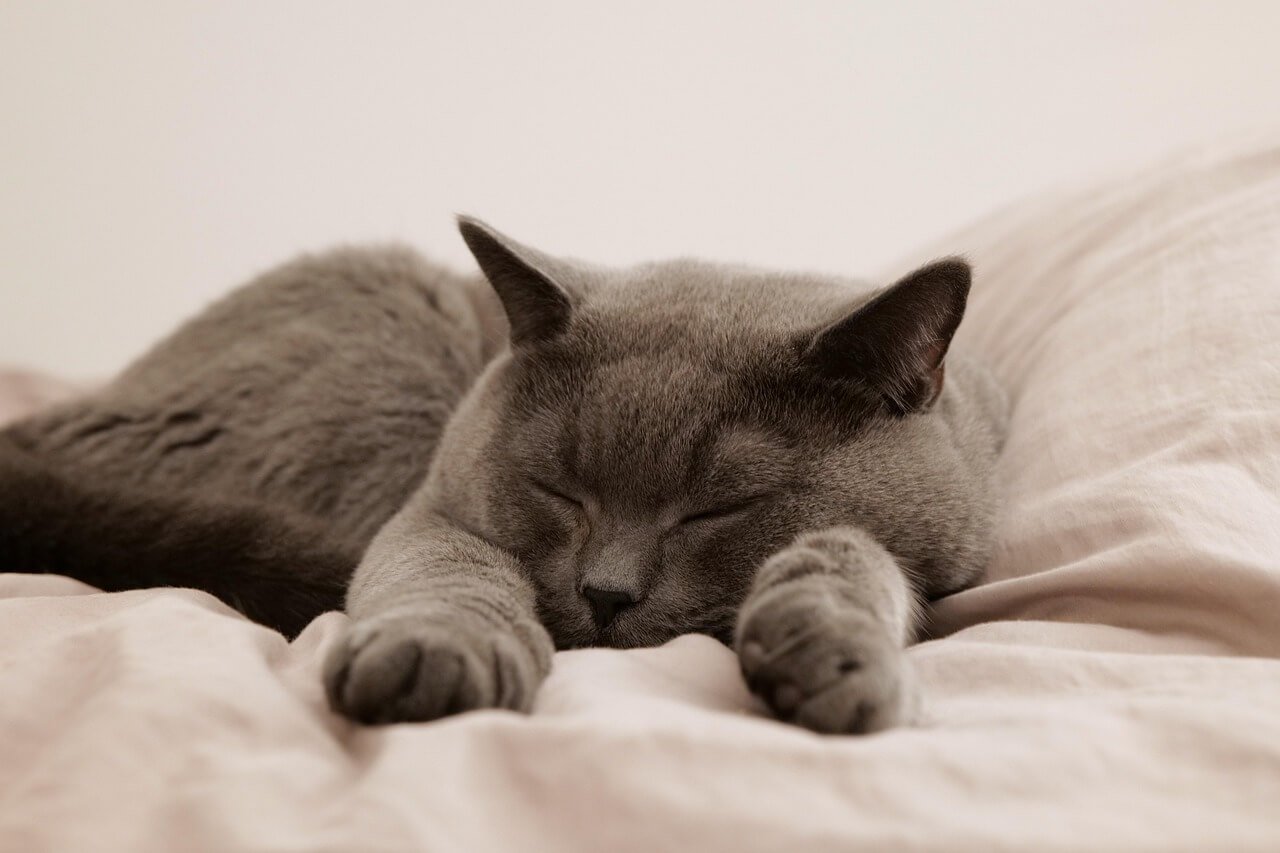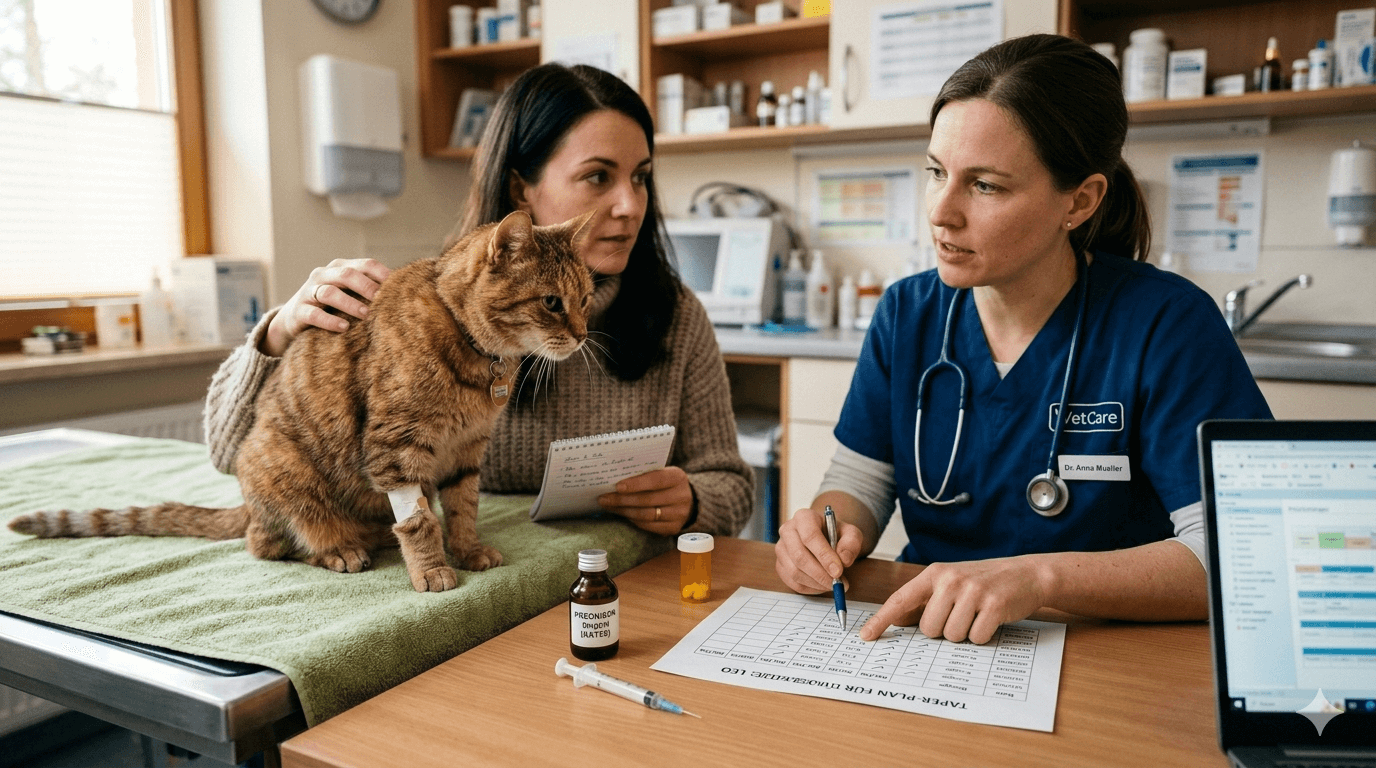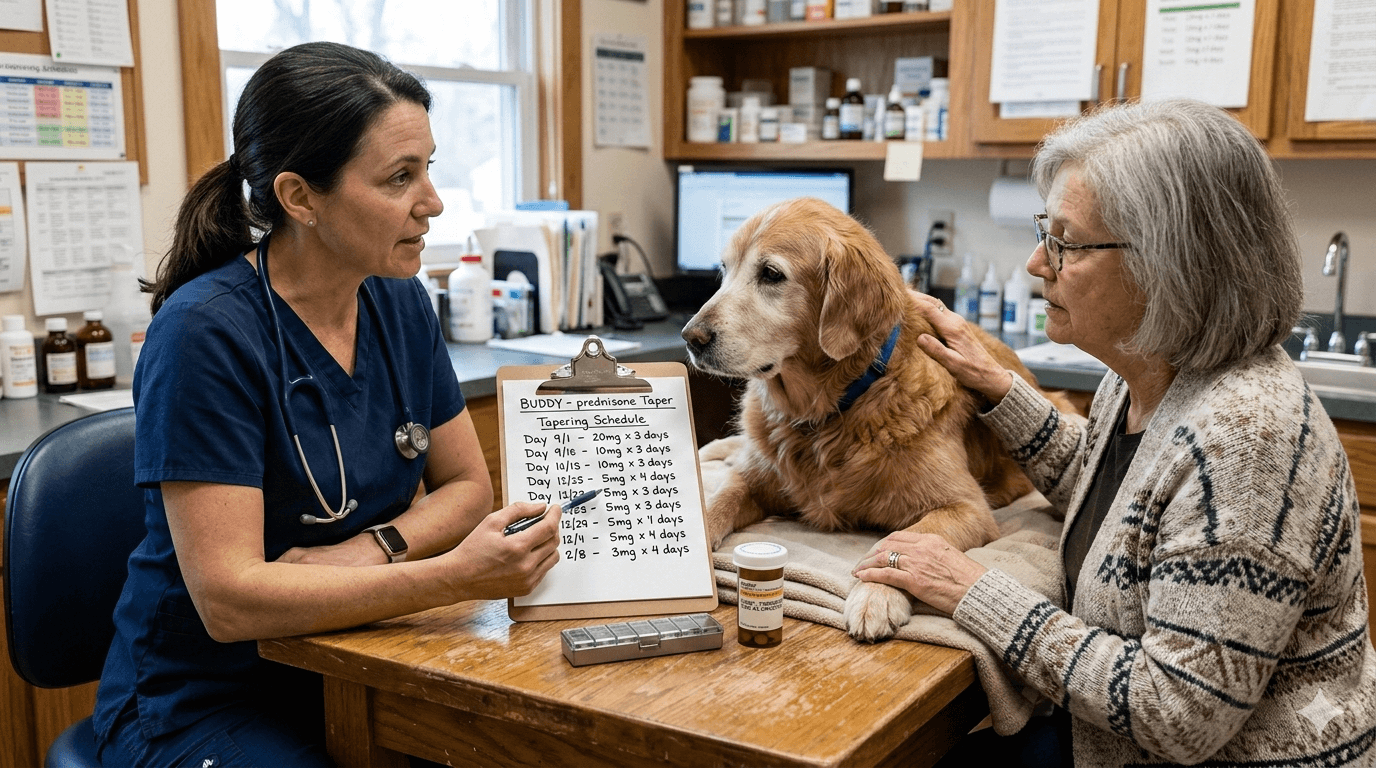Cat Licking Back Raw: Understanding the Behavior and How to Help
Cats are meticulous groomers by nature, but excessive licking—especially when it leads to raw or irritated skin—can be a sign of an underlying issue. If you’ve noticed your cat obsessively licking their back until it becomes raw, it’s essential to understand why this behavior occurs and how to address it. From allergies and stress to skin conditions and pain, there are many potential causes for this behavior. In this guide, we’ll explore the reasons behind excessive licking, how to identify the root cause, and what steps you can take to help your feline friend feel better. By addressing the problem early, you can prevent further discomfort and ensure your cat stays happy and healthy.
Common Causes of Excessive Licking in Cats
When a cat licks their back excessively, it’s often a response to physical discomfort, emotional stress, or environmental factors. Here are some of the most common reasons behind this behavior:
Allergies : Food allergies, environmental allergens (like pollen or dust mites), or flea bites can cause itching and irritation, leading to excessive licking.
Flea Infestations : Fleas can cause intense itching, prompting your cat to lick and chew at their skin in an attempt to relieve the discomfort.
Skin Conditions : Issues like dermatitis, fungal infections, or dry skin can make your cat’s skin feel irritated and raw.
Stress or Anxiety : Cats may lick excessively as a coping mechanism for stress, changes in their environment, or separation anxiety.
Pain or Injury : Underlying pain, such as arthritis or muscle soreness, might cause your cat to focus on specific areas of their body, including their back.
Understanding the cause is the first step toward finding a solution and alleviating your cat’s discomfort.
Signs That Your Cat’s Licking Is a Problem
While grooming is normal for cats, excessive licking that results in raw skin or hair loss is a red flag. Here are some signs that your cat’s licking has become problematic:
Hair Loss : Patches of missing fur, especially along the back, indicate over-grooming.
Red or Raw Skin : Irritated, inflamed, or bleeding skin suggests your cat is causing harm through excessive licking.
Behavioral Changes : Increased hiding, restlessness, or aggression may accompany compulsive licking.
Odor from the Skin : A foul smell could indicate an infection or other skin condition.
Licking Obsessively : If your cat spends hours licking instead of engaging in normal activities, it’s a clear sign of an issue.
If you notice any of these signs, it’s important to investigate further and consult your veterinarian to determine the cause.
Check this guide 👉Why Is My Cat Licking Everything? Best 7 Expert Tips!
Check this guide 👉Why Does My Cat Lick My Head? Best 7 Behavior Tips!
Check this guide 👉Why Does My Cat Lick Me and Not My Husband? Best 7 Tips!

Physical Causes of Excessive Licking | Emotional Causes of Excessive Licking |
|---|---|
Allergies (food or environmental) | Stress or anxiety |
Flea infestations | Boredom or lack of stimulation |
Skin infections or dermatitis | Changes in routine or environment |
Pain or injury (e.g., arthritis) | Separation anxiety |
Dry or flaky skin | Compulsive behavior disorders |
How to Address Excessive Licking in Cats
Once you’ve identified the cause of your cat’s excessive licking, you can take steps to address the issue. Here are some practical strategies to help your cat recover and prevent further damage:
Visit the Vet : Schedule an appointment to rule out medical conditions like allergies, infections, or pain.
Treat Fleas : Use vet-recommended flea treatments to eliminate infestations and soothe your cat’s skin.
Provide Mental Stimulation : Engage your cat with toys, puzzles, or interactive play to reduce stress and boredom.
Create a Calm Environment : Minimize changes in your cat’s surroundings and provide safe spaces for relaxation.
Use Protective Gear : Consider using an Elizabethan collar or protective clothing to prevent further licking while the skin heals.
By addressing both the physical and emotional aspects of excessive licking, you can help your cat feel more comfortable and break the cycle of over-grooming.
Preventive Measures to Avoid Future Issues
Preventing excessive licking starts with maintaining your cat’s overall health and well-being. Here are some proactive steps you can take to reduce the risk of this behavior recurring:
Regular Grooming : Brush your cat’s fur regularly to remove loose hair and prevent matting, which can irritate the skin.
Monitor Diet : Feed your cat high-quality food and watch for signs of food allergies or sensitivities.
Flea Prevention : Use preventive flea treatments year-round to avoid infestations.
Environmental Enrichment : Provide scratching posts, climbing trees, and interactive toys to keep your cat mentally stimulated.
Routine Vet Check-Ups : Schedule regular veterinary visits to catch potential issues early and ensure your cat remains healthy.
Taking these preventive measures can help your cat stay happy, healthy, and free from the urge to over-groom.
Recognizing Emotional Triggers Behind Excessive Licking
Excessive licking is often a sign that your cat is experiencing stress or anxiety. Identifying these emotional triggers can help you address the root cause and provide relief for your feline friend. Here are some common signs of stress in cats:
Hiding More Than Usual : Cats may retreat to quiet spaces when they feel overwhelmed or anxious.
Changes in Appetite : A sudden increase or decrease in eating can indicate emotional distress.
Increased Vocalization : Excessive meowing or unusual sounds may signal discomfort or frustration.
Aggression Toward People or Pets : Stress can cause cats to lash out at others in their environment.
Inappropriate Elimination : Urinating or defecating outside the litter box is a common stress-related behavior.
By recognizing these signs, you can take steps to reduce stressors in your cat’s life and prevent behaviors like excessive licking.
Designing a Space That Promotes Calm and Comfort
A cat-friendly environment can significantly reduce stress and encourage healthy grooming habits. By making a few adjustments to your home, you can help your cat feel more secure and content.
Provide Vertical Spaces : Install shelves or cat trees to give your cat places to climb and observe their surroundings safely.
Offer Hiding Spots : Provide cozy hideaways, such as enclosed beds or boxes, where your cat can retreat when feeling overwhelmed.
Maintain a Routine : Cats thrive on consistency, so stick to regular feeding, play, and cleaning schedules.
Use Calming Scents : Products with synthetic pheromones, like Feliway, can help soothe anxious cats.
Limit Noise and Chaos : Keep loud noises and sudden disruptions to a minimum to create a peaceful atmosphere.
A calm and enriching environment can go a long way in reducing stress-related behaviors like excessive licking.
Steering Clear of Counterproductive Habits
When dealing with a cat that licks excessively, it’s easy to make mistakes that could worsen the situation. Avoiding these common pitfalls will help you address the issue more effectively.
Ignoring the Problem : Assuming the behavior will resolve on its own can lead to worsening skin conditions or emotional distress.
Punishing Your Cat : Scolding or punishing your cat for licking can increase their stress and exacerbate the behavior.
Overusing Elizabethan Collars : While helpful in some cases, prolonged use of collars without addressing the root cause can frustrate your cat.
Skipping Vet Visits : Self-diagnosing or delaying professional care may result in untreated medical issues.
Introducing Too Many Changes at Once : Sudden changes to your cat’s routine or environment can heighten their stress levels.
By avoiding these mistakes, you can approach the issue thoughtfully and ensure your cat receives the care they need.
Frequently Asked Questions About Cat Licking Back Raw
Why does my cat lick their back so much?
Excessive licking can be caused by allergies, fleas, skin conditions, stress, or pain. Identifying the underlying cause is key to resolving the issue.
Can stress cause my cat to lick their back raw?
Yes, stress or anxiety can lead to compulsive licking as a way for your cat to self-soothe.
Is excessive licking harmful to my cat?
Yes, it can lead to raw skin, infections, and hair loss, so it’s important to address the behavior promptly.
How can I stop my cat from licking their back raw?
Treat the underlying cause, provide distractions, and use protective measures like an Elizabethan collar if necessary.
When should I take my cat to the vet for excessive licking?
If your cat’s licking results in raw skin, hair loss, or behavioral changes, consult your vet to rule out medical or emotional issues.
Help Your Cat Break the Cycle of Excessive Licking
Excessive licking, especially when it leads to raw skin, is a sign that something is amiss with your cat’s physical or emotional well-being. By identifying the root cause and taking proactive steps to address it, you can restore your cat’s comfort and happiness. Whether it’s treating a medical condition, reducing stress, or providing enrichment, your efforts will go a long way in ensuring your feline friend thrives. Remember, early intervention is key, so don’t hesitate to seek professional guidance if needed. With patience and care, you can help your cat overcome this behavior and enjoy a healthier, more balanced life.
How to Taper Off Prednisone for Cats: Best 7 Expert Tips! – Safely reduce prednisone with vet guidance. Learn now!
How to Taper Off Prednisone Schedule for Dogs: Best 7 Tips! – Learn the safe way to reduce prednisone, recognize withdrawal signs, and keep your dog healthy during the process.
Can a Cat Scratch Give You Rabies? Best 7 Expert Tips! – Learn how rabies spreads, assess risks from cat scratches, and know when to seek medical help. Stay safe!
Can a Dog Scratch Give You Rabies? Best 7 Expert Tips! – Learn the risks, symptoms, and steps to take if scratched by a dog. Stay informed and protect yourself from rabies exposure.





